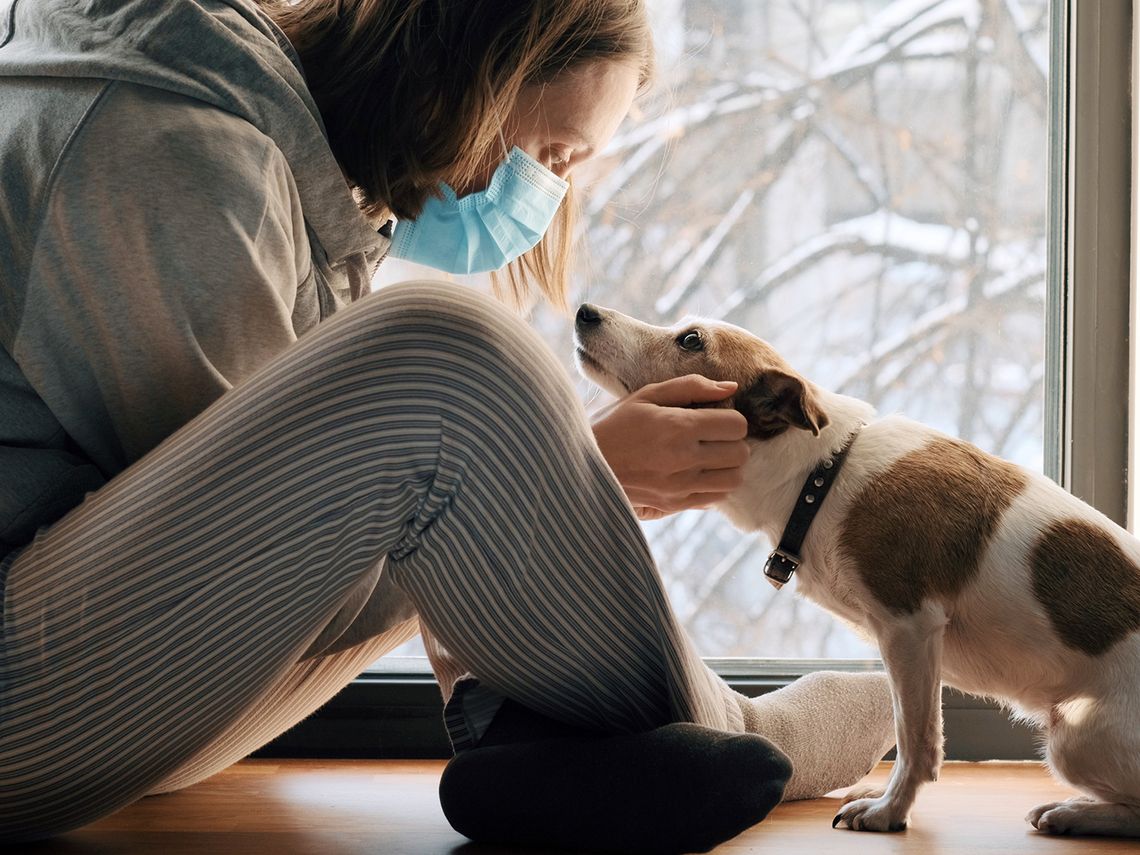With the holiday season winding to a close, COVID-19 cases are spiking across the country. As pet owners quarantine, questions of pet safety against this disease and the quickly spreading omicron variant continue to arise as well.
Drs. Sarah Hamer and Lori Teller, both associate professors at the Texas A&M College of Veterinary Medicine & Biomedical Sciences, offer insight on how the spread of the omicron variant may affect pets and the precautions owners should take.
Hamer, who has been leading a research team in examining how COVID-19 is impacting our pets since summer 2020, said she anticipates dogs and cats will continue to be exposed to the same strains of COVID-19 that are circulating in humans.
“In our study here at Texas A&M University, we have sampled more than 580 household pets that all live where at least one person was infected with COVID-19, and we confirmed infections in about 100 animals,” Hamer said. “As far as we know, pet infections result from spillover from humans; infected people who share space with their pets can infect their pets, just as humans can infect other people.”
Hamer’s research team has discovered that some of the variants that have circulated among humans have also been present in their animals; because omicron is transmitted among humans much easier than other variants, researchers suspect it is likely to transmit easier among pets as well.
“Our team was the first to find the alpha variant of concern in a pet dog and cat that had mild symptoms of disease— just some sneezing that resolved after several days,” Hamer said. “Fortunately, our active surveillance is revealing that COVID infections in animals are generally not major concerns for the health of dogs and cats, as only about one-quarter of the infected animals were reported to have signs of disease by their owner, and in all cases, they were mild.
“However, considering these high rates of omicron variant transmission, it is important that pet owners realize animals are susceptible to infection, just like other humans, so that they can isolate from their animals if they develop symptoms, are awaiting test results, or get a positive result,” Hamer said.
Pets with COVID-19 typically exhibit mild upper respiratory signs, according to Teller; any pet suspected to have COVID-19 should be examined by their veterinarian.
“Most pets will not be symptomatic, but if a pet has been exposed to someone with COVID, and the pet exhibits signs of a respiratory infection, then testing for a variety of pathogens that cause respiratory disease can be checked,” Teller said. “Your veterinarian can request that COVID be included in the respiratory panel.
“Generally, if an animal is symptomatic, the symptoms are mild, and the pet can be treated with supportive care,” Teller said. “This includes plenty of rest and fluids and, on occasion, anti-inflammatory medications to reduce any discomfort.”
Teller said that because avoiding all contact with a pet while isolating may be difficult for some pet owners, it is OK if owners need to keep their pets at home with them.
“Pets are a tremendous source of comfort, especially when we are sick, and we understand that you may want share a brief snuggle with your pet,” Teller said. “Talk to your veterinarian–if your pet is healthy and your veterinarian agrees, take appropriate precautions and enjoy a short time of togetherness.”
Around the world, many mammal species in zoos have been confirmed as infected with COVID-19. While many of these animals are now being vaccinated, these vaccines currently are not being considered for household pets.
Although COVID-19 continues, medical teams and researchers, alike, are learning new ways to better protect both human beings and those around us, including our furry friends, from this disease. By continuing to get tested and self-isolating when needed, together, we can work to prevent the spread of COVID-19.
Pet Talk is a service of the College of Veterinary Medicine & Biomedical Sciences, Texas A&M University. Stories can be viewed on the web at vetmed.tamu.edu/news/pet-talk. Suggestions for future topics may be directed to [email protected].




